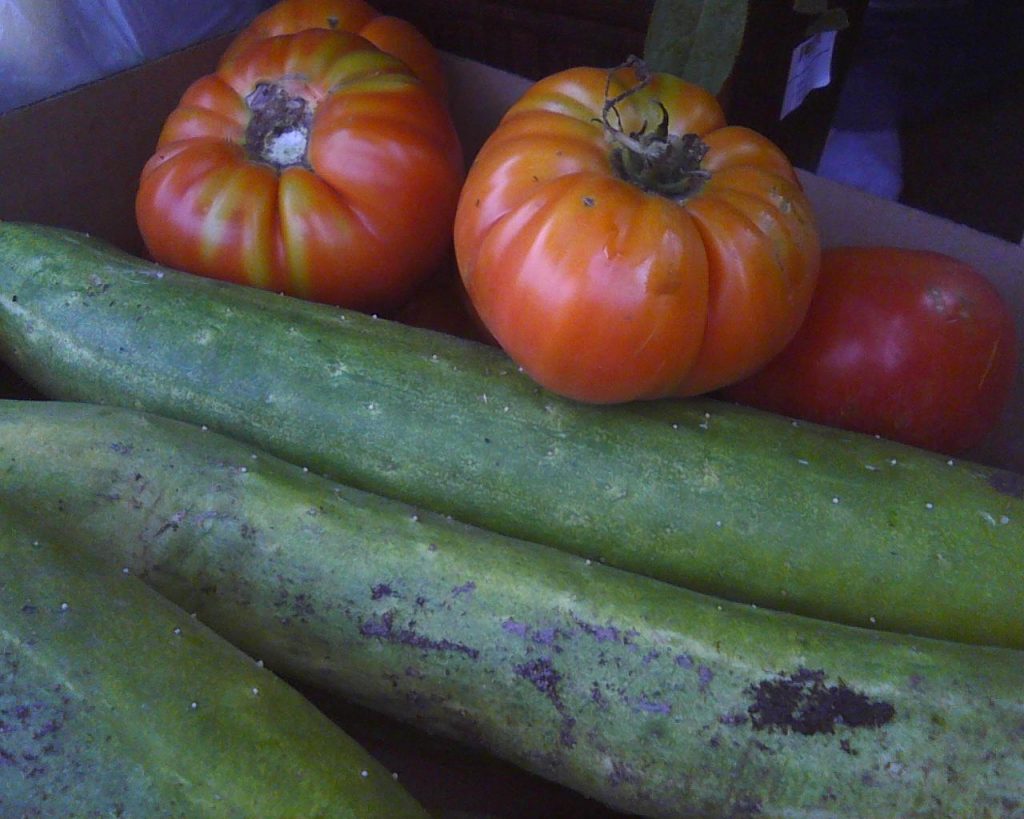August John Hoffman with Ashley Simons-Rudolph
“Community service work and stewardship provide opportunities for engagement, interaction and understanding for persons from different ethnic and cultural backgrounds. When individuals are provided with opportunities to share their skills and contribute to a growing community, ethnocentrism and ethnic conflict significantly decrease as do negative stereotypes.”
Highlights
Youth want to learn responsible ecological practice and environmental stewardship from gardening.
────
When individuals work collaboratively towards a mutually beneficial goal, their attitudes towards each other significantly improves and reduces the likelihood of conflict.
How $500 Can Build Community
The SCRA Social Justice Mini-grant program provided seeds for the development of a vegetable garden for youth at a detention center (Boy’s Totem Town) located St. Paul, MN. Beginning in May 2017, youth participated in a vegetable garden program that taught them the principles of environmental sustainability, healthful and nutritious diets, and responsible ecological practices. Youth worked collectively in weeding, cultivating, mulching and planting the vegetables, including squash, tomatoes, peppers, corn and watermelons. The foods also reflected the ethnic heritage of the participants; the vegetables that were harvested were used in meals associated with Hmong, Hispanic, and African American cultures.
On how a community psychology perspective informed the project
Community psychology refers to the practice and science of understanding cultural competence, human values, and how individuals can better “connect” within their own communities. At-risk youth learned practices involving environmental stewardship that facilitate a stronger community and improve health and psychological states of well-being. Community projects can simultaneously impact the community and the individual through empowerment and self-growth.
Project Results
Participants prepared the vegetable garden over an 8-week period. Participant interviews and a short survey examining participants’ experiences in preparing the garden and their attitudes towards eating healthy foods revealed that participants:
- enjoy gardening
- were more likely to eat healthier foods while completing their garden work
- felt more connected to their community, and
- had a stronger understanding of different cultures and ethnic groups after completing the gardening project.
What Does This Mean For?
Research and Evaluation– “Green” ecological projects, such as community gardening programs and urban forestry programs, can provide a unique way to help community members understand how to work with other community members in ways that improve relationships with diverse groups (i.e., religious, economic, and ethnic) and also educate people about the value and importance of environmental stewardship practices.
Practice- There is a great need for ecological mentors to provide structured and organized activities to youth (especially “at-risk” youth) within an outdoor environmental setting.
People Interested in Working with Youth in Community Gardening– There is a need for educators, administrators, politicians, community stakeholders and residents to become more proactive in their efforts to work in community development projects that serve underserved populations. Funding is important, and even small amounts of funding can go far with commitment to collective work in community development projects.
For more information about how ecology impacts psychological well-being, please see:
Hoffman, A. J. (2017). Millennials, Technology, and Perceived Relevance of Community Service Organizations: Is Social Media Replacing Community Service Work Activities? The Urban Review: Issues and Ideas in Public Education, 49, 1-24. 10.1007/s11256-0160385-6.
Hoffman, A. J. (2017). Creating a Culture of Transformation in Guatemala: One Fruit Tree at a Time. Electronic Green Journal https://escholarship.org/uc/uclalib_egj.
Hoffman, A. J., Doody, S., Veldey, S. & Downs, R. (2016). Permaculture, fruit trees and the “Motor City”: Facilitating eco-identity and community development in Detroit, Michigan. National Civic Review.
Hoffman, A. J. (2015). Philosophical Foundations of Evolutionary Psychology. Lexington Publishers, Lanham, MD.
Download a pdf of this article here.
Read more about August Hoffman’s work in The Community Psychologist Vol 54 (4) Fall 2018



